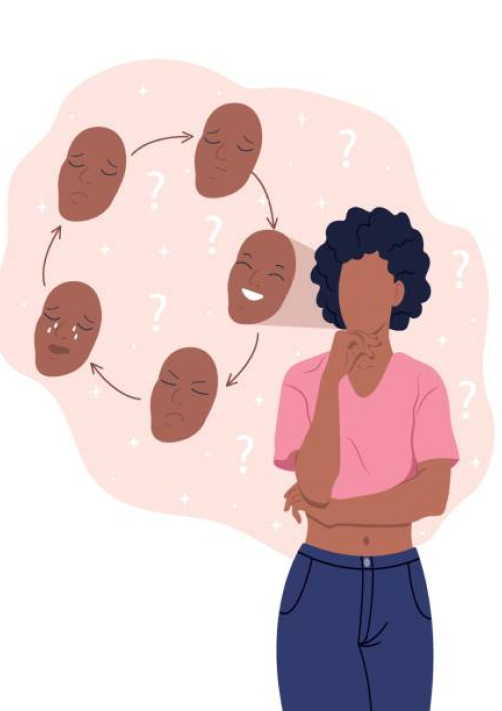BIPOLAR DISORDER
Take Bipolar Test
Bipolar disorder is a mental health condition that involves extreme shifts in mood and activity levels. It’s a complex condition but often responds well to treatment.
Bipolar disorder is a mental health condition that involves extreme mood shifts. You might experience high-energy moods (mania or hypomania), low-energy moods (depression), or both.
Bipolar disorder used to be called “manic depression,” but healthcare professionals no longer use this term.
Each person has a unique experience of bipolar disorder. For some, the mood episodes last just a few hours or days. For others, they might last for weeks or months.
Types of bipolar disorder
There are three main types of bipolar disorder:
Bipolar I disorder. Doctors diagnose bipolar I after at least one manic episode. Many people with bipolar I disorder experience hypomanic and depressive episodes, too.
Bipolar II disorder. Doctors diagnose bipolar II after at least one depressive episode and at least one hypomanic episode.
Cyclothymic disorder. You may receive this diagnosis if you’ve had bipolar-like symptoms for at least 2 years, but your symptoms don’t quite meet the criteria for bipolar disorder.
Symptoms
If you live with bipolar disorder, chances are you already know your own symptoms pretty well. Bipolar disorder symptoms differ between people, and they might differ from one mood episode to the next.
It can be helpful to keep track of your symptoms over time to identify any patterns in your mood changes. Better understanding these shifts is a great first step in learning to deal with them.
Manic episodes
During a manic episode, or mania, you might feel like you’re on top of the world. It might feel like you can do or achieve anything. On the other hand, you might feel very irritable, especially with others who don’t share your mindset at the time.
A manic episode is a period of 1 week or longer during which you experience the following:
• elevated self-esteem or feelings of grandiosity
• a feeling of boundless energy
• extreme happiness, euphoria, or extreme irritation
• needing less sleep
• fast, loud, and sometimes disorganized speech
• racing thoughts and rapidly changing ideas
• feeling or seeming very distractable
• doing lots of activities at once, such as taking on work projects, organizing social events, or making seemingly purposeless movements
• engaging in risky behaviors, such as overspending, risky sexual behavior, or risky financial investments
Hypomanic episodes
A hypomanic episode, or hypomania, involves similar symptoms as a manic episode. The difference is that the symptoms:
• are less severe than in a manic episode
• have less impact on your daily life
• don’t require a hospital visit
• are present for at least 4 days in a row
If you have hypomanic episodes but no manic episodes, you might get a diagnosis of bipolar II disorder.
Depressive episodes
If you’re having a depressive episode, or an episode of depression, you may be experiencing:
• a depressed mood, which might feel like extreme sadness, hopelessness, or helplessness
• a loss of pleasure in things that you typically enjoy
• feelings of worthlessness, or excessive or inappropriate guilt
• fatigue or a lack of energy
• difficulty thinking or concentrating
• weight loss or gain
• changes in appetite
• suicidal thoughts or actions
When you’re not receiving treatment, the mood episodes can be severe. During depressive episodes, you might notice you’re having thoughts about death or suicide. It’s important to remember that these feelings will pass, and that you don’t have to go through it alone.
Treatment
Finding the best course of treatment for you might take some trial and error. Certain medications work better for some people than others. It can take a month or two before you start to feel the full benefits of the treatment plan.
Some people find it beneficial to join a support group, read books explaining effective self-help strategies, or keep a journal.
Living with bipolar disorder
Living with bipolar disorder presents many daily challenges. What are some of the long-term, successful strategies to staying well, sticking with treatment, and maintaining a balanced mood?
One important aspect of living with this condition is learning to build routines and sticking with them, no matter what. If you stop following your routine, you may be more likely to have a manic or depressive episode.
If you stop taking the mood stabilizer that helps regulate your moods, it could also lead to a manic or depressive episode.